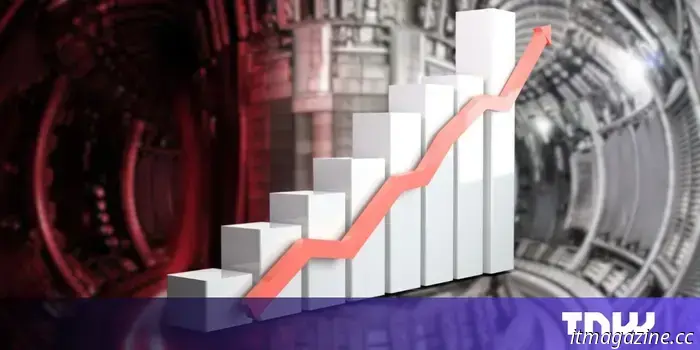
European fusion startups are breaking funding records in their effort to achieve clean energy.
Funding Focus is a new series analyzing cash flow into the European tech ecosystem. Last week, we examined the largest investment rounds in the Netherlands, and now we are focusing on Europe’s emerging fusion energy sector.
European fusion energy startups achieved a record €290 million in funding during the first half of this year as venture capitalists invest heavily in a technology that could provide nearly unlimited clean energy. Funding in 2025 has already surpassed the levels of 2024 — the previous record year — which saw fusion energy firms raise €185 million, according to data from Dealroom.
Leading the way this year is Proxima Fusion, based in Munich, which secured €130 million in Series A funding in June from prominent investors such as Balderton Capital, Cherry Ventures, and Plural. This round represents the largest single investment in a fusion energy startup in Europe.
Founded in 2023 as a spin-off from the renowned Max Planck Institute for Plasma Physics, Proxima aims to commercialize a type of fusion reactor known as a stellarator. This twisted metal doughnut structure is significantly more complex to design than the more commonly used tokamak, but if engineered properly, it could enable a more stable and continuous fusion power source.
The second-largest funding round of the year was obtained by another Munich-based firm: Marvel Fusion. The company raised €113 million in a Series B round in March, led by investors including EQT and Siemens Energy.
Marvel is working on a laser-based fusion method called inertial confinement. Unlike other fusion approaches that utilize large magnets or reactors, this method employs ultra-powerful lasers to target tiny hydrogen fuel pellets. The intense heat and pressure from the lasers cause the hydrogen atoms to fuse and release energy, mimicking the sun's fusion process, but in short, controlled bursts. Last year, Marvel initiated the construction of a $150 million laser facility in Colorado.
Other notable funding rounds in Europe’s growing fusion energy sector this year include France’s Renaissance Fusion, which raised €32 million for its stellarator project, and Sweden’s Novatron, which secured €10 million to develop a unique kind of fusion reactor referred to by TNW as a “mirror machine.”
This record funding occurs as Europe strives to take the lead in achieving the first commercially viable fusion reactor, which most industry experts anticipate will be operational in the 2030s.
Francesco Sciortino, co-founder and CEO of Proxima, asserts that fusion energy can complement wind and solar power and serve as a “decisive building block” for Europe’s energy security.
“Fusion has the potential to fundamentally shift our perspective on energy, transforming the world from being controlled by those with oil and gas reserves to one where technology enables countries to determine their own futures,” he previously told TNW.
Sciortino believes Europe has the capability to spearhead this technology; however, funding for fusion in Europe still significantly lags behind that in the US.
In the first half of this year, US-based fusion startups attracted a total of $1.6 billion (€1.3 billion) in investments, over four times the amount received by European firms. Major funding rounds include a staggering $1 billion Series B for Commonwealth Fusion Systems, backed by Bill Gates, and a $425 million investment in Helion Energy, which has the support of Sam Altman.
Other articles
European fusion startups are breaking funding records in their effort to achieve clean energy.
In the first half of this year, European fusion energy startups secured a record €290 million as venture capitalists placed their bets on this clean energy technology.
